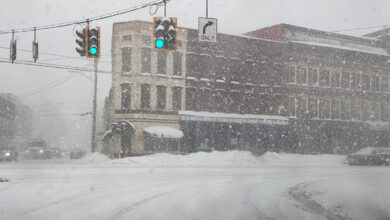By late December each year, the slopes in Lebanon’s glitzy Mzaar ski and mountain resort, nestled in Faraya village 2500 meters above sea level northeast of Beirut, are usually dusted with snow and crowded with winter sports enthusiasts. In the restaurants and outdoor cafés at the bottom of the mountain sit the Lebanese and international jet set, sipping cocktails and smoking Cuban cigars in their expensive shades and hairdos.
But the unusually warm weather in Lebanon this winter caused skiers, outdoor recreationists and their respective entourages to arrive late, spoiling business for the country’s otherwise lucrative winter sports industry and delaying the ski season for a month.
“It’s the first time the snow is this late in the ten years I’ve been here," said Elena Mehanna, owner of the Mzaar Sport ski and snowboard rental shop. "Usually the slopes open around 25 December, but this year is an exception.”
But now, business appears to be picking up rapidly with the recent, long-awaited arrival of rain and cold.
During the week, Mehanna said she keeps busy renting out ski and snowboard gear to students. Then it’s a full house on Saturdays and Sundays, with weekend skiers and tourists coming in from the region and beyond. “They come from everywhere–Saudi Arabia, Europe," she said. "They come from embassies and companies."
That should come as no surprise, since a ski holiday in Lebanon puts a considerably smaller dent in one’s wallet than a trip to one of Europe’s alpine resorts–even if you stay at a higher-end hotel and enjoy fine dining.
At the bottom of the mountain, Al-Masry Al-Youm found Chinese engineer Stona and her friend–named "Snow," as it were–among the hordes of skiers, snowboarders and picnicking families from the Gulf.
They both work in Qatar and decided to come to Lebanon for a weekend ski trip. Sipping on her hot tea, Snow explained that the lifts had closed early due to strong winds and bad weather conditions.
“We’re too late today,” she said to Al-Masry Al-Youm. “No ski passes are being sold. We’ll try to come tomorrow instead, before we fly back. Maybe the weather will improve.”
And it did. A few days later, snow fell en masse on Mzaar–both on the mountain and on the road leading up to it. On some particularly cold nights, temperatures dipped below -10°C.
On the weekend of 5 February, lines to the lifts quickly filled up, as did cafeterias, restaurants and hotels. Party-goers gave toasts to the sound of electronic beats at the apres ski. The usually short drive down the mountain took a whopping two hours on Sunday night due to heavy traffic.
“It’s not about money. It’s about the weather here,” ski instructor and hotel owner Josef Khalil told Al-Masry Al-Youm, debunking claims that the global financial crisis had hindered business earlier this season.
As soon as the snow came down, said Khalil, his Faraya Village Club hotel quickly filled up with guests and people started calling him for ski lessons.
Likewise, several consecutive days of heavy snowfall brought plentiful business to the Intercontinental Mzaar luxury hotel.
“It’s picked up very well this weekend; we’re fully booked for now. If the snow persists, we’re looking at solid bookings for the next few weeks,” Walid Kanaan, general manager of the Intercontinental Mzaar, told Lebanese English-language newspaper the Daily Star.
Kanaan hopes the winter weather will continue into the early spring. “We hope that, since it started late, the season will last longer," he was quoted as saying. "If the snow continues into March or the beginning of April, it could mean good business for us.”
Like everyone else in the ski industry, Mehanna will keep close tabs on the weather, because–at the end of the day–it’s vital for business. “Everything here depends on the weather,” she said.
For more information on Mzaar and Faraya, please click here.




